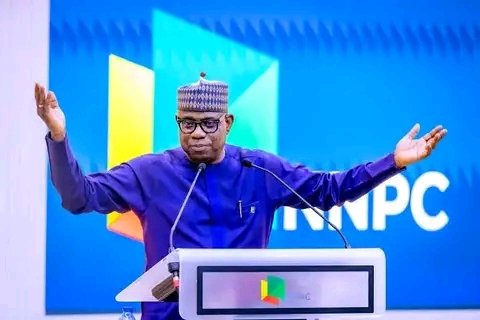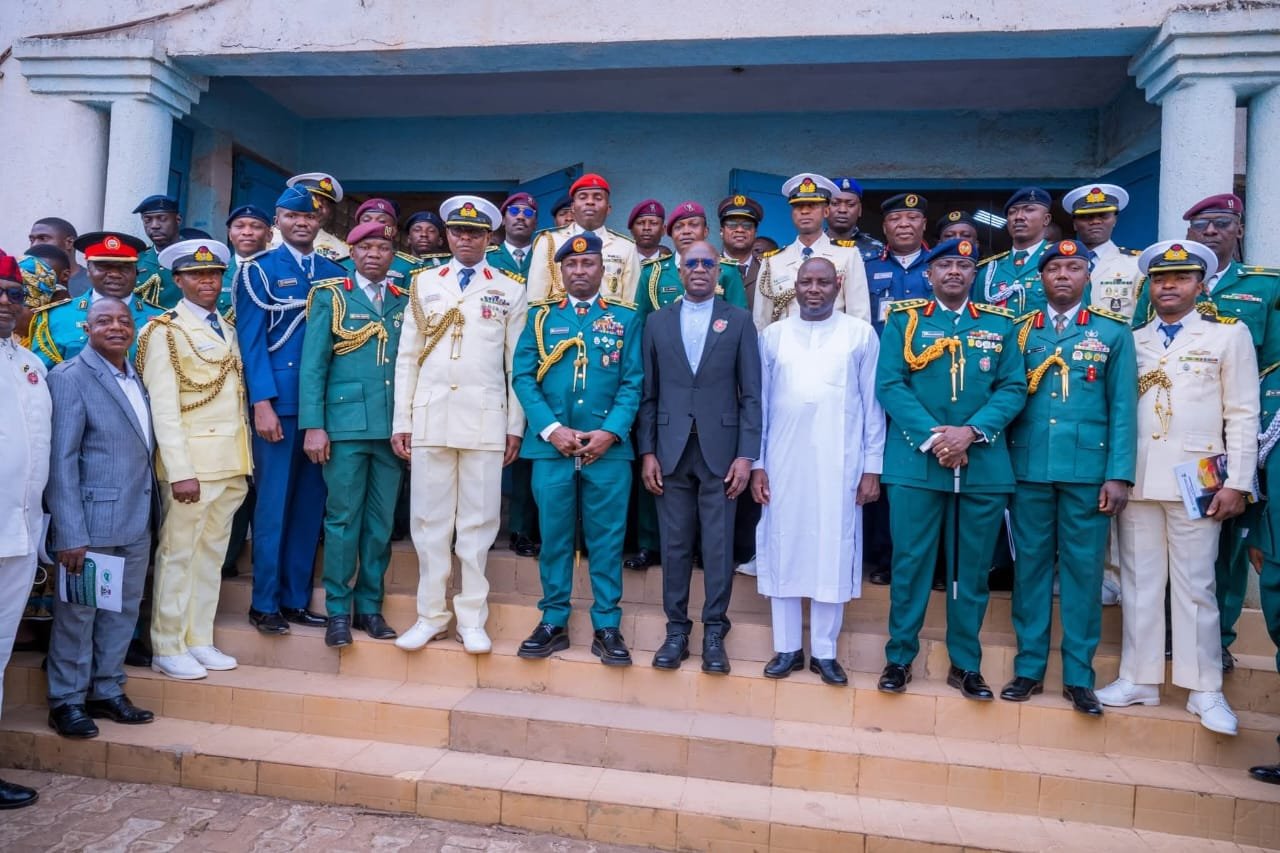Uncertainty Over Purported Resignation NNPC Boss

A cloud of uncertainty hangs over the Nigerian National Petroleum Company Limited (NNPCL) following conflicting reports about the status of its recently appointed Group Chief Executive Officer (GCEO), Bayo Ojulari. While some claim he has resigned, others allege he was forced out in a dramatic, politically motivated move.
Reports on Saturday suggested that Ojulari was pressured into signing a resignation letter by operatives from the Economic and Financial Crimes Commission (EFCC). Sources described the incident, which allegedly took place on Friday night, as a “civilian coup” conducted without presidential approval. The operation was reportedly overseen by EFCC Chairman Ola Olukoyede and the Director-General of the Department of State Services (DSS), Adeola Ajayi.
As of Sunday morning, there has been no official statement from the government or the NNPCL, leaving room for a flurry of claims and counter-claims.
PRNigeria‘s attempts to verify the reports with contacts at the EFCC and DSS were unsuccessful.
Bashir Bayo Ojulari, a Yoruba Muslim from Kwara State in Northern Nigeria, was appointed GCEO of the NNPCL by President Bola Tinubu less than five monthss ago precisely on April 2, 2025.
Before this, he served as the executive vice-president and chief operating officer of Renaissance African Energy Company. He is also a former managing director of Shell Nigeria Exploration and Production Company (SNEPCo). A mechanical engineer by training, he is a fellow of the Nigerian Society of Engineers.
Just a few months into his tenure, Ojulari is facing a firestorm of allegations.
Accusations and Calls for Arrest
A web portal reported late Saturday that Ojulari had confirmed his resignation, stating that it was voluntary and without drama. However, this claim directly contradicts other reports suggesting a forced departure.
Some of the allegations against Ojulari were incidents before he resumed office.
The Economic Confidential recently reported that Ojulari firmly rejected the idea of selling the country’s refineries as stated a commitment to their high-grade rehabilitation and retention, dismissing rumors to the contrary. Ojulari believes that selling the refineries would be “ill-advised and sub-commercial” given their near completion, and would lead to “further value erosion.” He considers the sale of these critical national assets to be “highly unlikely.”
The NNPCL’s decision to retain the refineries according to him is in line with its core mandate as a strategic custodian of Nigeria’s energy infrastructure. It also reflects the Federal Government’s broader objectives for national energy security. By keeping the refineries, the company aims to ensure stability and self-sufficiency in the nation’s energy sector. This stance reinforces the government’s commitment to protecting and maximizing the value of its key assets for the benefit of the Nigerian populace.
One major point of contention is a purported $21 million (N34.65 billion) corruption scandal. Civil society groups, including OilWatch Nigeria and the Workers’ Rights Alliance, have called for his arrest and prosecution. These groups claim that an associate, Abdullahi Bashir Haske, who is currently detained, allegedly confessed to holding the funds on Ojulari’s behalf.
During a press conference on July 31 at the EFCC premises, the coalition accused Ojulari of economic sabotage, pointing to the prolonged shutdown of Nigeria’s refineries and alleged plans to privatize NNPCL assets. In response, the groups launched a three-day protest at the National Assembly, NNPCL headquarters, and EFCC offices.
Additional allegations revolve around a $21 million kickback scheme involving oil traders and pipeline contractors. According to reports, a whistleblower alerted the EFCC, which subsequently froze the implicated account. This was allegedly uncovered after Ojulari reassigned fund collection responsibilities.
In a separate but related matter, the Socio-Economic Rights and Accountability Project (SERAP) had previously urged the EFCC and the Independent Corrupt Practices Commission (ICPC) to investigate claims that N500 billion was not remitted by the NNPCL to the Federation Account between October and December 2024.
Defenders and a Reform Agenda
While some groups are calling for Ojulari’s ouster, others are rallying to his defense. Organizations like Change Initiatives and the Human Rights Writers Association of Nigeria (HURIWA) have suggested that the protests are politically motivated attempts to derail his reform agenda.
These groups have praised Ojulari’s leadership, highlighting initiatives like real-time monitoring systems, audits of opaque contracts, and efforts to stabilize fuel supply. They claim these reforms have led to a noticeable reduction in queues at petrol stations.
A coalition of civil society groups, including the Coalition of Civil Society Groups and Professionals for Good Governance (CCSGP), has also thrown its support behind Ojulari. In a press statement, the CCSGP praised President Tinubu for appointing Ojulari and described his accomplishments as “groundbreaking,” citing increased profitability, transparent remittances to the Federation Account, and plans to boost oil and gas production significantly. The group alleges that “fifth columnists and dirty politicians” are trying to distract Ojulari from his reforms, which they claim are a part of President Tinubu’s vision for the energy sector.
Other Criticisms and Contradictions
Despite the praise, critics have raised concerns about Ojulari’s alleged lavish spending, including a high-cost retreat in Kigali involving private jets. There are also claims of a difficult work environment that has led to staff resignations.
The Niger Delta Environmental Justice Coalition (NDEJC) also described the reported EFCC-DSS operation as politically driven, although the group acknowledged Ojulari’s contributions to boosting oil production and remittances.
The myriad of claims and counter-claims paints a picture of intense political and professional struggle at the heart of Nigeria’s national oil company, leaving many to wonder about the true reason behind the alleged pressure on Bashir Bayo Ojulari.




